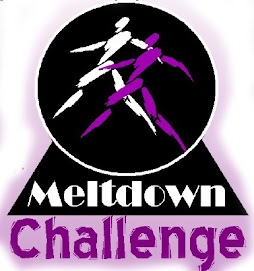by Tami Newton
Dr. Ryan Konarik is not only a Crosby chiropractor, he also is quite knowledgeable about nutrition and fitness and is working on his wellness degree. He is interested in teaching about wellness because of the fact that 73% of American are overweight or obese.
He told us that there are four underlying causes of obesity: (1) lack of sleep (2) chronic stress (3) processed food (4) an unlimited amount of sugar.
He explained that the lack of sleep upsets the balance of ghrelin and leptin in our bodies. Ghrelin, produced in the gastrointestinal tract, stimulates appetite. Leptin, produced in fat cells, sends signals to the brain when you are full. When you don't get enough sleep, it drives leptin levels down, which means you don't feel as satisfied after eating. Lack of sleep also causes ghrelin levels to rise, which means your appetite is stimulated and you want more food.
Cortisol, nor epinephrine and epinephrine are released during times of stress, resulting in a "fight or flight" response to a perceived threat. Following a stressful or threatening event, epinephrine and nor epinephrine levels return to normal. Cortisol levels can remain elevated over a longer time period. Cortisol levels can remain persistently elevated in the body when a person is subject to chronic stress.
Cortisol stimulates fat and carbohydrate metabolism for fast energy. Cortisol stimulates insulin release and maintenance of blood sugar levels. The end result is an increase in appetite. Chronic stress or poorly managed stress, lead to elevated cortisol levels that stimulate appetite, resulting in weight gain or difficulty losing unwanted pounds.
Some ways to relieve stress is to exercise, taking time to relax, yoga, take a vacation, have a one hour massage once per month. If your commute time is causing a huge problem, you might think about changing jobs.
For years, men were hunter/gatherers and had to eat the food they killed or harvested pretty quickly. We have been genetically designed to seek out the most calorically dense food available, while using the least amount of energy. These are instinctual behaviors necessary for survival that have been in place for thousands of year, before humans learned how to farm, domesticate animals and preserve food.
As time went on and the population grew, there became a need to process food and make it easier to transport and store. While this idea seemed very smart at the time, it has since become apparent that by lengthening the shelf life of food, we have leeched much of the proper nutrients from food, like fiber and natural oils. We have also added sugar (high fructose corn syrup), fat (trans fat/hydrogenated oil) and sodium (preservatives). These additives are harmful to our bodies.
Consumption of processed food causes the release of a neurotransmitter in the brain, called dopamine, which causes a feeling of pleasure (exactly the same kind of reaction that happens with sex and drugs). The release of dopamine can cause continual pleasure seeking behavior. This pleasure producing mechanism is referred to as the dopamine re-enforcement pathway, which is the basis of any addiction.
This re-enforcement pathway becomes a vicious cycle. We eat processed food and get high, the high wears off, we feel guilty, we remember what makes us feel better for a little while, so, we eat processed food. This dopamine pathway depletes the body of its natural nutrient for feeling good and we have to rely on the dopamine re-enforcement pathway, just like a drug or sex addict.
Americans have access to an unlimited amount of sugar in our diets. The consumption of sugar has risen alarmingly since, 1922. In 1992, the average American consumed 10 pounds of sugar per year, in 1970, we consumed 120 pounds per sugar per year, in 1994, we consumed 150 pounds per year and in 1997, we consumed 160 pounds per year. Today, Americans are eating almost 1/2 pound of sugar per day (160 pounds per year). Some people, like fitness and nutrition buffs, eat less sugar and some people, like the overweight and morbidly obese, eat more sugar.
Until the 1920's, sugar was a rare treat and most sugar was found in the fruits and vegetables eaten. Here are the forms of dietary sugar:
. Glucose - aka dextrose. Human body's primary source of energy.
. Brown sugar - sugary crystals contained in a molasses syrup, with natural flavor and color, 91 to 96% sucrose.
. Corn syrup - made from cornstarch - mostly glucose.
. Fructose - sugar found in fruit and honey - sweetest natural sugar.
. High fructose corn syrup - derived from cornstarch, usually a combination of 55% fructose and 45% sucrose. Treated with an enzyme that converts glucose to fructose, which results in a sweeter products. Used in soft drinks, baked goods, jelly, syrup, fruits and desserts.
. Sucrose - commonly called cane sugar, table sugar or simply sugar.
Anything made with white flour is a concentrated carbohydrate.
Higher consumption of sugar-sweetened beverages is associated with a greater magnitude of weight gain and an increased risk for development of type 2 diabetes in women, possibly by providing excessive calories and large amounts of rapidly absorbable sugars.
Anytime we consume fructose, it is going to make us want to eat more food. When we take in glucose (natural sugar) our body is satisfied and wants less food.
M. Daniel Lane and colleagues at Johns Hopkins have built on the suggested link between the consumption of fructose and increased food intake, which may contribute to a high incidence of obesity and type 2 diabetes.
There was a discussion of artificial sweeteners and Dr. K only recommends Stevia. Stevia is actually used to control diabetes in Japan. Other sweeteners make neurotoxins in the body.
Dr. K subscribes to the 80 / 20 rule. As long as you are staying true to a natural, no processed food diet 80% of the time, you will win the battle.
Dr. Konarik says that diabetes can be controlled, if you get the cortisol levels under control. Diabetics need to exercise, relax, consistently eat healthy food, avoid sugars, pastas, breads. All of our plates should consist of a large portion of vegetables, 3 to 4 ounces of lean protein and a small serving of a carbohydrate (1/2 cup) or fruit. We should also eat nuts and seeds and get 4 to 6 grams of Omega 3's per day. Diabetics might also need to supplement with magnesium, zinc or chromium. He also recommended supplements to reduce cortisol and protein shakes between meals.
When asked what he thought of the vegan diet, he responded that vegans can be healthy if they supplement with Omega 3 oils and protein supplements. It is often difficult to get a vegan to eat Omegas because they are made from fish oil. He says that the body has been programmed to eat meat and pointed to the canine teeth and the fact that all of us started out as hunter/gatherers and that the meat was what provided the protein.
Dr. K. realizes that the meat sources we have access to are sick because they are given hormones and antibiotics. He says that the best sources are chicken (because they eat grains and are not given as many hormones) and fish.
When asked about his views on wine consumption, Dr. Konarik stated that wine is a toxin and that all foods are either nutrients or toxins. While the grapes and Resveratrol in wine are good, the toxins in wine stress the liver and can cause liver problems quickly for certain people. Wine also slows down the metabolism and is empty calories. He recommends eating grapes and taking Resveratol supplements (toxins removed). He said that while he would not ever recommend wine consumption, he said that it should be used as a treat occasionally and not on a regular basis.
Dr. K recommends that we cleanse our liver two times per year. He said that when you are on a cleanse, you should avoid protein, bad fats and eat lots of vegetables. Need to let your liver rest and not be bogged down digesting food. He suggested that we research liver cleansing and choose the one that makes the most sense for us. He says that once the liver is cleansed, the metabolism speeds up and we burn more calories.
Next week, Pastor Keenan Smith will be our guest speaker and will discuss our mind, body and spirit. Last year, he tore a phone book in half and shared his beliefs about the proper balance of our physical, spiritual and emotional health.
Connie Harding announced that the Shape Shifters, Mustard Seeds and Crosby Crunchers were the top 3 teams in the Big Loser Contest. Sheila reminded us that Connie needs the team leaders to give her their final team weigh in by Thursday, March 25. Late weights will not be taken because it will take a few days to compile prizes for the winning teams, based on the sexes and number of team members.
Have a great week! See you next Tuesday.
Wednesday, March 17, 2010
Subscribe to:
Post Comments (Atom)












No comments:
Post a Comment